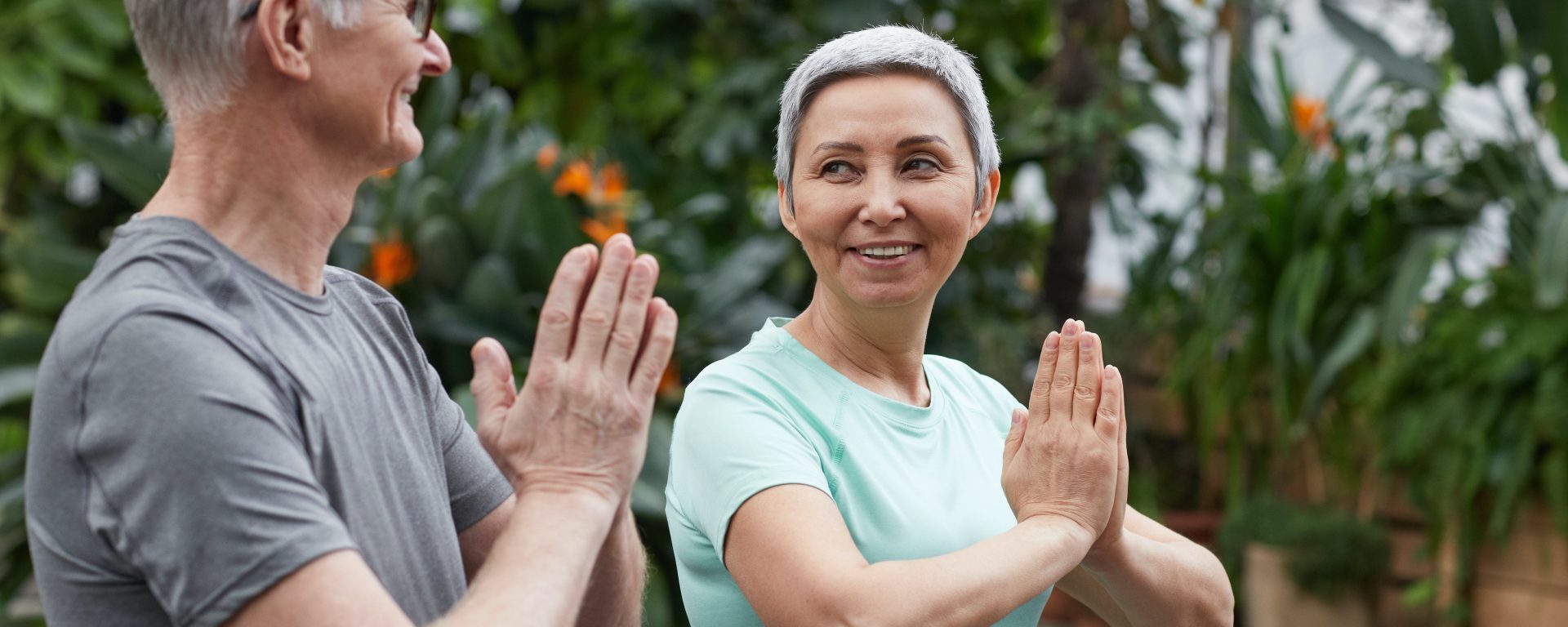In 2014, a randomized controlled trial conducted by Kimberlee Bethany Bonura and Gershon Tenenbaum aimed to investigate the influence of a yoga intervention on the psychological health of older adults. This study was carried out at two North Florida facilities catering to the older population, with a focus on participants aged 65 to 92.
The research involved 98 older adults who were randomly assigned to one of three groups: chair yoga, chair exercise, and a control group. The study assessed participants at three different time points: before the intervention, immediately after the intervention, and one month following the intervention. Various psychological health parameters were measured, including anger, anxiety, depression, well-being, general self-efficacy, self-efficacy for daily living, and self-control.
The findings of the study demonstrated notable improvements in several aspects of psychological health among the participants engaged in yoga compared to those in the exercise and control groups. Specifically, yoga participants exhibited significant improvements in the following psychological health indicators:
- Anger: Yoga participants showed substantial improvements in anger levels, with Cohen’s d effect sizes of 0.89 when compared to the exercise group and 0.90 when compared to the control group from pretest to posttest. These improvements were sustained at the one-month follow-up (d = 0.90 and 0.72).
- Anxiety: Yoga participants also experienced reductions in anxiety, with effect sizes of d = 0.27 (compared to exercise), 0.39 (compared to control) immediately after the intervention, and d = 0.62 (compared to exercise) and 0.63 (compared to control) at the one-month follow-up.
- Depression: Yoga proved effective in reducing depression, with effect sizes of d = 0.47 (compared to exercise) and 0.49 (compared to control) post-intervention and d = 0.53 (compared to exercise) and 0.51 (compared to control) at the one-month follow-up.
- Well-being: Yoga participants reported increased well-being, with effect sizes of d = 0.14 (compared to exercise) and 0.49 (compared to control) post-intervention and d = 0.25 (compared to exercise) and 0.61 (compared to control) at the one-month follow-up.
- General Self-Efficacy: The yoga group demonstrated substantial improvements in general self-efficacy, with effect sizes of d = 0.63 (compared to exercise) and 1.10 (compared to control) post-intervention and d = 0.30 (compared to exercise) and 0.85 (compared to control) at the one-month follow-up.
- Self-Efficacy for Daily Living: Yoga participants also displayed increased self-efficacy for daily living, with effect sizes of d = 0.52 (compared to exercise) and 0.81 (compared to control) post-intervention and d = 0.27 (compared to exercise) and 0.42 (compared to control) at the one-month follow-up.
Interestingly, the study found that changes in self-control had a moderating effect on the observed changes in psychological health.
This study, conducted over a 6-week period, underscores the potential of yoga as an effective intervention for enhancing the psychological well-being of older adults. The results indicate that participation in chair yoga can lead to significant improvements in various psychological health parameters, including anger, anxiety, depression, well-being, general self-efficacy, and self-efficacy for daily living. These findings emphasize the value of incorporating yoga programs into the holistic care and well-being of older adults.
Reference: Bonura, K. B., & Tenenbaum, G. (2014). Effects of yoga on psychological health in older adults. Journal of physical Activity and Health, 11(7), 1334-1341.
